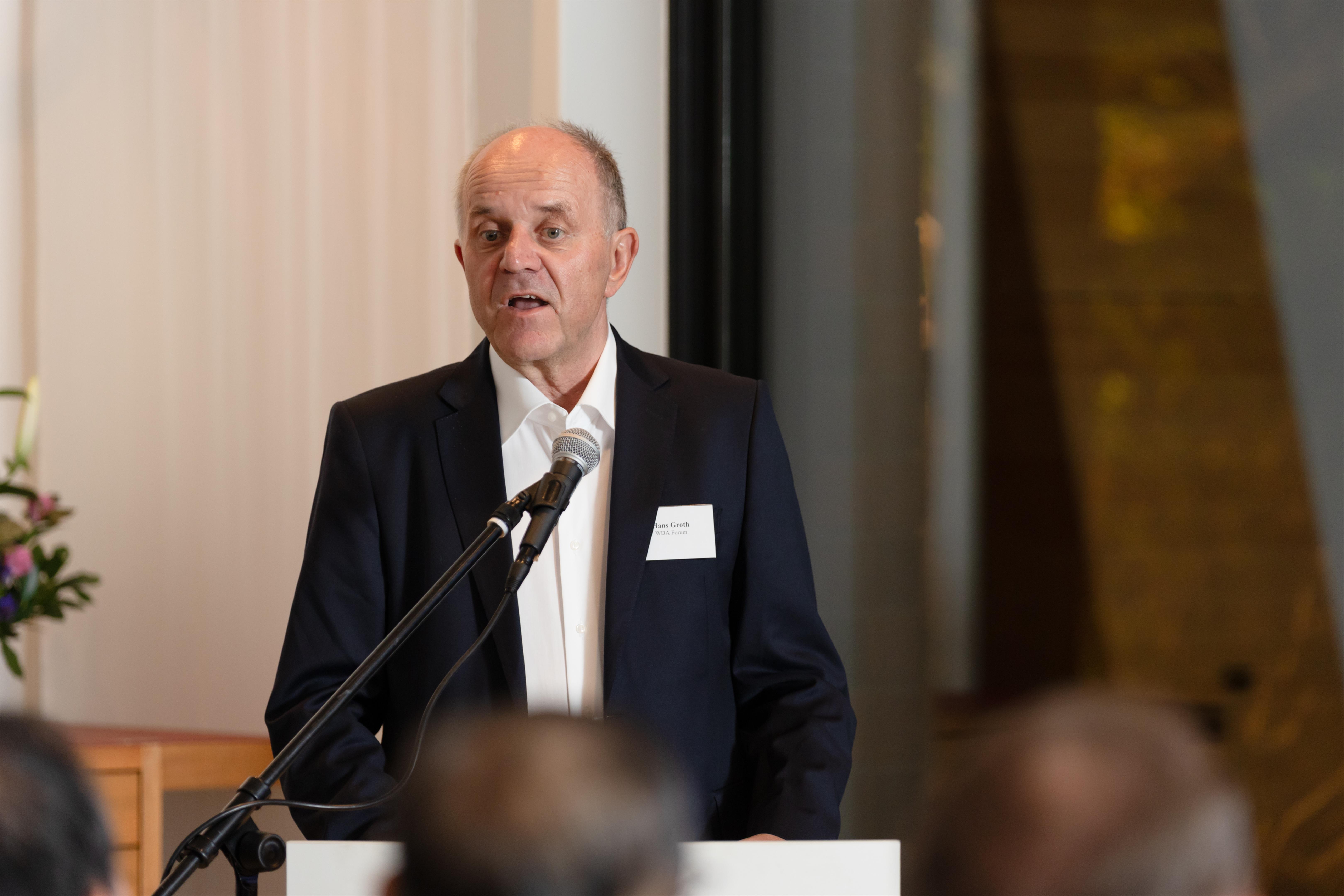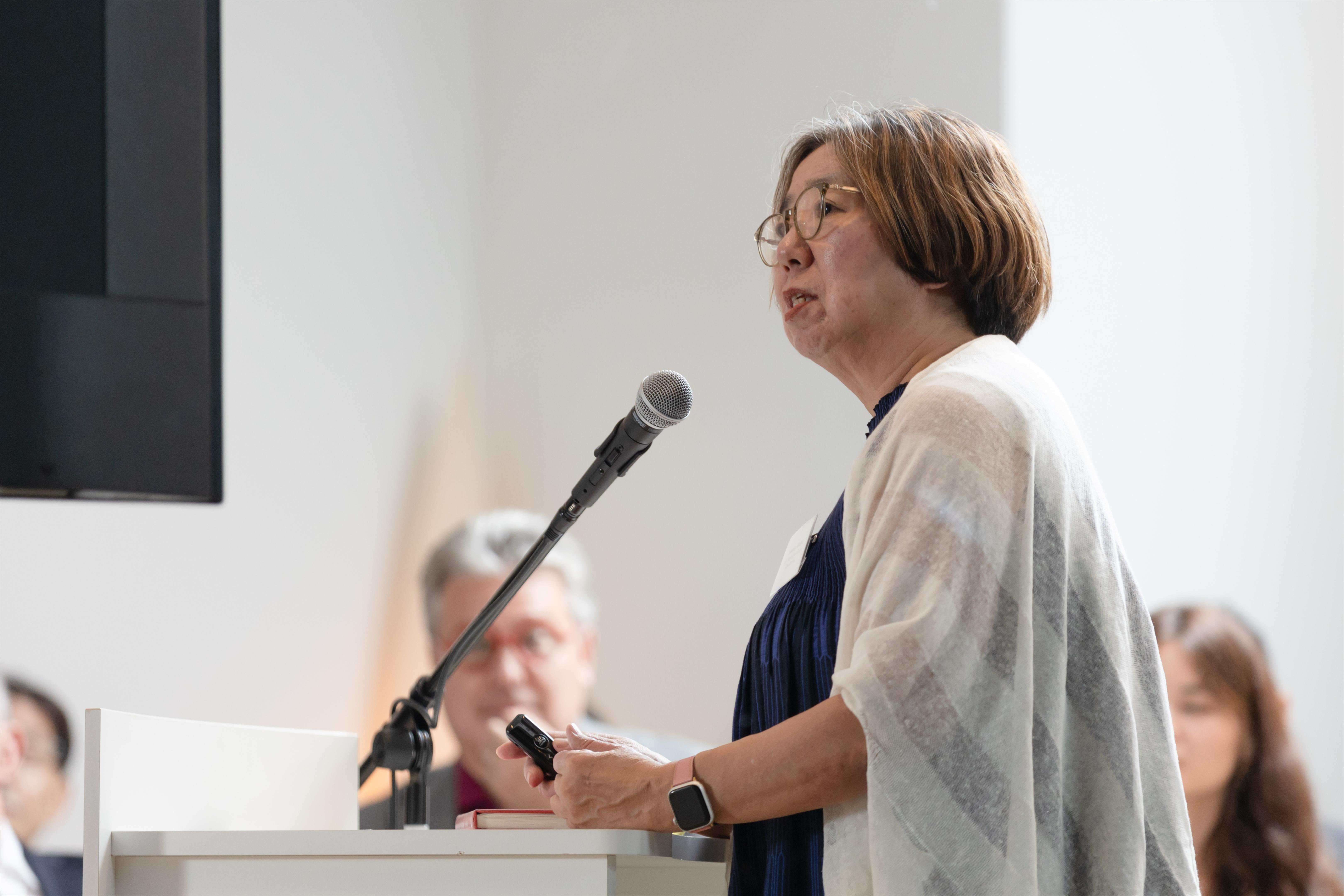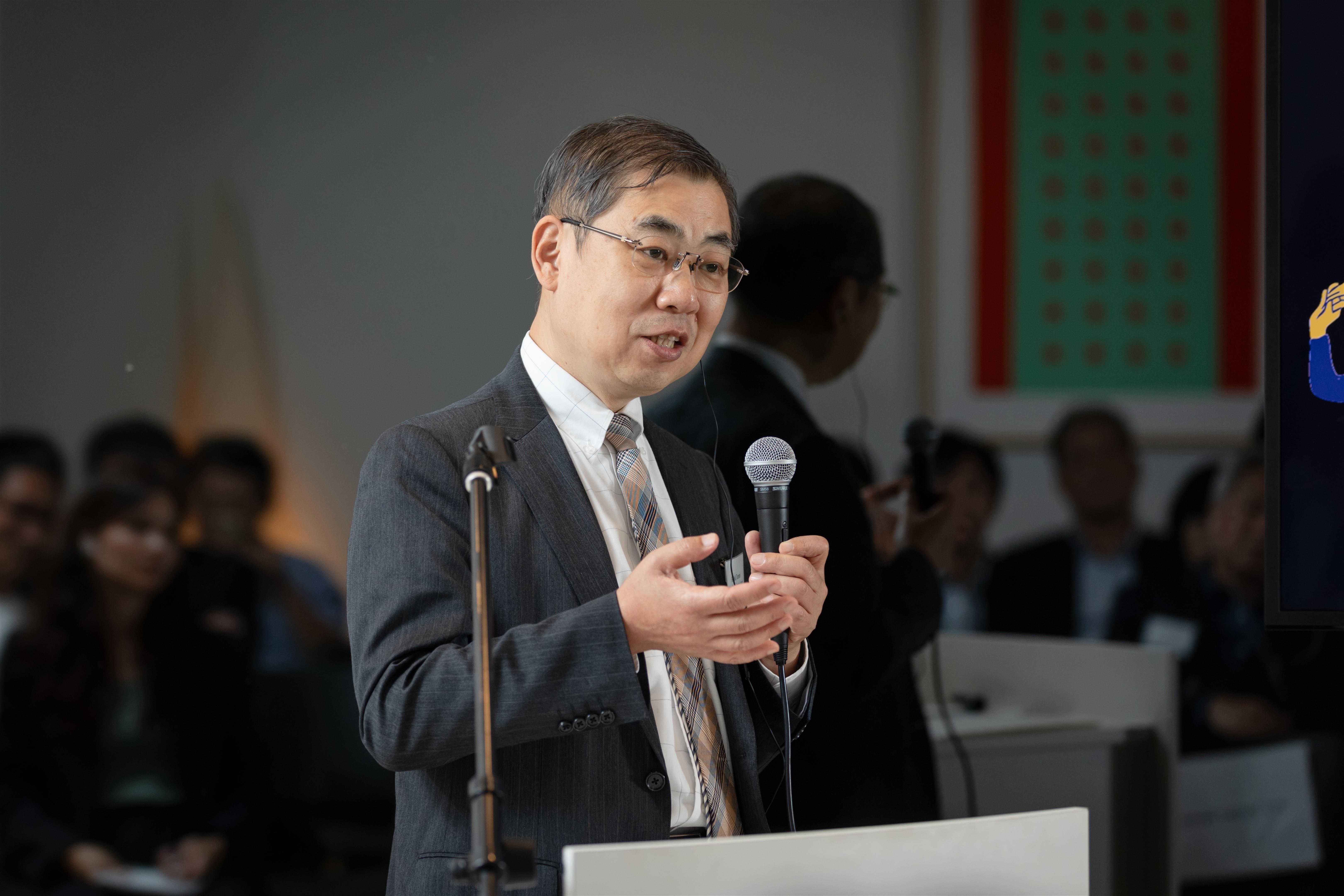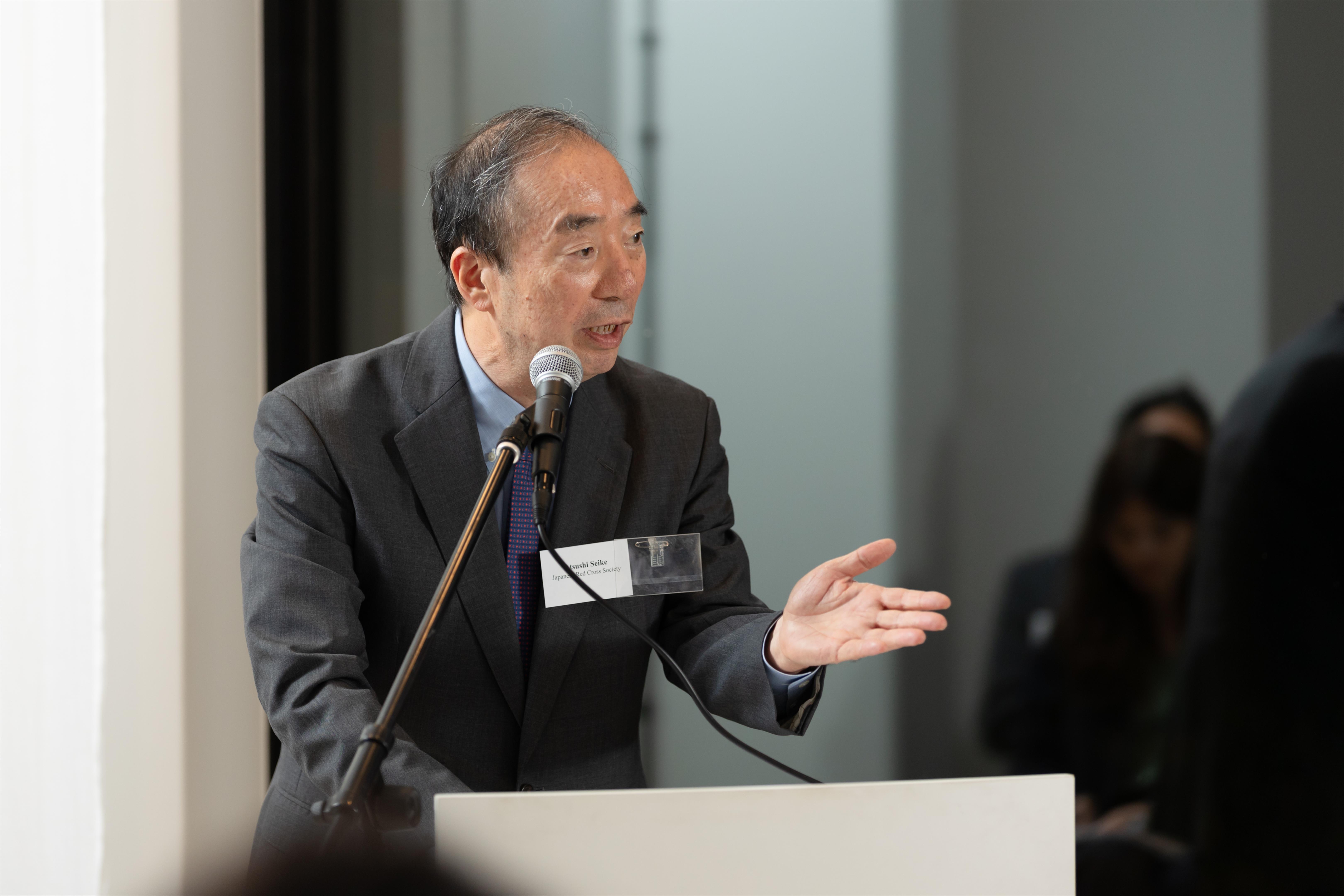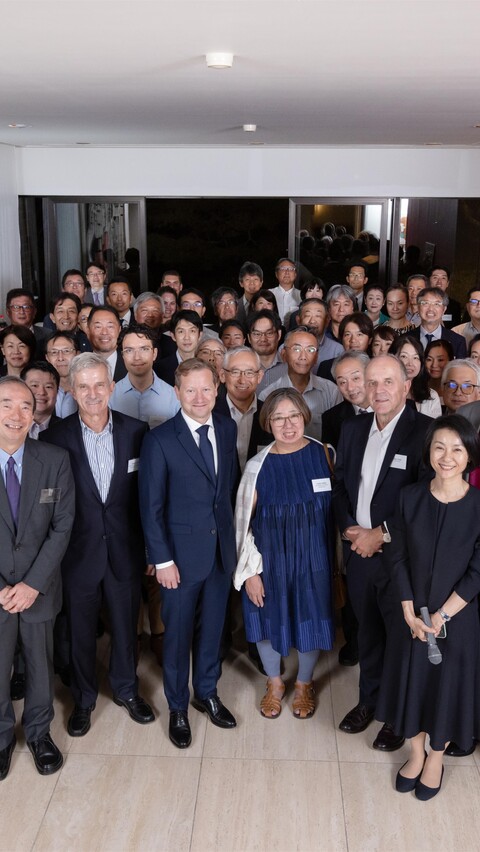
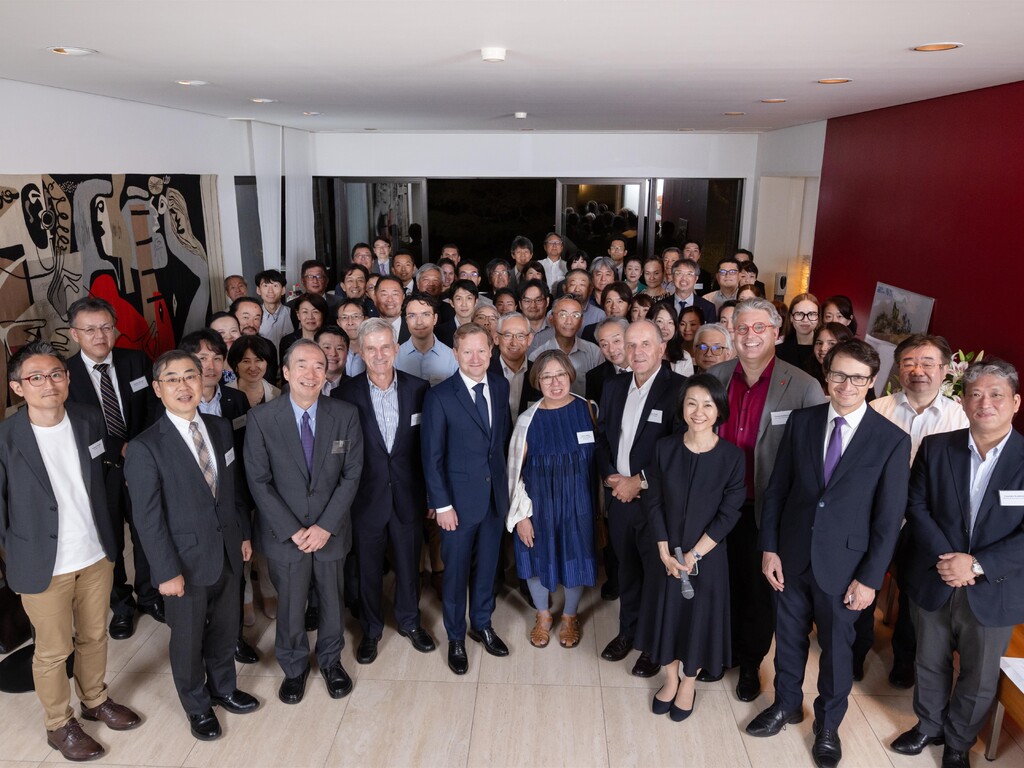
Healthy Longevity
Swiss and Japanese Ageing Experts Meet in Tokyo to Discuss Healthy Longevity
On September 17, 2024, just a day after Japan celebrated Respect for the Aged Day, a national holiday honoring the contributions of older citizens, the Swiss Residence in Tokyo hosted an event focused on healthy longevity. Experts from Switzerland and Japan – two global leaders in healthy ageing – gathered to discuss the challenges and opportunities of ageing populations. The event, part of the Swiss Vitality Days, brought together high-profile attendees working on healthy longevity, addressing challenges faced by ageing societies and exploring avenues for a more inclusive future.

The event was the first to be hosted at the Swiss Residence by the newly-arrived Ambassador-designate of Switzerland to Japan, Mr. Roger Dubach. In his opening speech, the Ambassador emphasized the significant factors influencing longevity, such as a high quality of life, strong healthcare systems, and good dietary habits. He also noted Switzerland’s love of hiking, which contributes to both physical and mental health by reducing anxiety, depression, and risks of chronic diseases like heart disease and high blood pressure. He concluded by expressing his hope that the event would help strengthen the ties between the longevity ecosystems of Japan and Switzerland and thanking the sponsors of the Swiss Vitality Days for their support.
Switzerland’s Longevity Landscape: Learnings from Dr. Hans Groth
In the first presentation focusing on the Ageing Situation in Switzerland, Dr. med. Hans Groth (Chairman of the Board, World Demographic & Ageing Forum) discussed the rising old-age dependency ratio, highlighting how the growing number of people aged 65 and above is placing an increasing burden on the working-age population. He pointed out that while Swiss citizens enjoy a high healthy life expectancy, they are also experiencing more years living with disabilities. This “longevity gap” between healthy life expectancy and total life expectancy is a major challenge for Switzerland.
Dr. Groth emphasized that societies are now at an important crossroad: they can either seize the opportunity to actively integrate elderly citizens into social and economic ecosystems or risk leaving them isolated in loneliness. He underscored the importance of multi-stakeholder dialogue across sectors—technology, economy, law, politics, and society—to turn the challenges of ageing into opportunities. To address these issues, Dr. Groth outlined potential strategies, including encouraging longer and more flexible work lives, promoting volunteering and community involvement, enhancing social skills across generations, redesigning environments to be more age-friendly, developing new markets tailored to older consumers, fostering intergenerational knowledge transfer, and strengthening family cohesion and caregiving systems.
Japan’s Super-Ageing Society: Prof. Yasuko Akutsu’s Perspective
The presentation of Prof. Yasuko Akutsu (President & CEO, MT Healthcare Design Research Inc. | Assistant Professor, Chiba University Hospital), titled Japan’s Long Life: How We Achieved It and the Challenges We Face, explored the factors behind Japan’s extraordinary longevity, which she attributed to genetic factors, an advanced healthcare system, and traditionally balanced dietary habits. She explained how Japan’s elderly welfare policies, which began in the 1960s, and the availability of comprehensive health checkups have contributed to early disease detection and longer life expectancy.
However, Prof. Akutsu also outlined several challenges Japan faces as a super-ageing society. She discussed the “Okinawa Crisis,” where the westernization of diets has had a negative impact on health, as well as the effects of urbanization, which has eroded traditional community support systems. She pointed to the growing phenomenon of Genkai Shuraku (villages where over 50% of the population is elderly) and Genkai Danchi (ageing apartment complexes), exemplifying the difficulties in maintaining essential communal activities and the increase of isolation. Another critical issue is the shortage of medical and nursing caregivers, a problem that will likely worsen in the future. While technology, particularly AgeTech, holds potential to alleviate some of this burden, Prof. Akutsu cautioned that it may not fully bridge the gap in time and stressed the importance of increasing technology literacy among older adults to ensure they can use these tools independently.
A Global Perspective: Prof. Thomas Zeltner on the UN Decade of Healthy Ageing
Prof. Thomas Zeltner (Chairman, Swiss Red Cross | Founder & Chairman, World Health Organization (WHO) Foundation | Former Secretary of State & Director General, Swiss Federal Office of Public Health) introduced the United Nations Decade of Healthy Ageing, noting that longer lives represent one of humanity’s greatest achievements. However, he emphasized that it is not enough to simply add years to life; it is crucial that older people also maintain good health and well-being in their later years. The goal of the Decade, he explained, is to optimize older people’s functional abilities, which include meeting basic needs, continuing to learn and grow, maintaining mobility, building relationships, and contributing to society.
Prof. Zeltner outlined four action areas of the UN Decade of Healthy Ageing: creating age-friendly environments that foster the abilities of older people, combating ageism by changing how society views ageing, ensuring access to long-term care for those who need it, and providing integrated, person-centered care for older adults. He stressed that older people should be empowered to age safely in environments that are right for them, while continuing to develop personally and contribute to their communities.
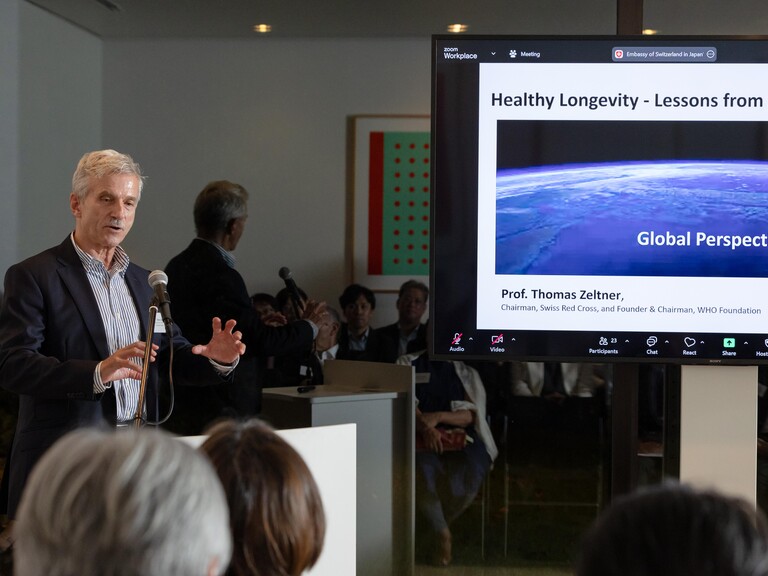
Panel Discussion: Building Inclusive, Intergenerational Communities
Moderated by Dr. Florian Kohlbacher (Vice President of Commercial Transformation, Japan & South Korea Operating Unit, The Coca-Cola Company | Former Director of the Economist Intelligence Unit), the panel discussion explored the importance of building transgenerational societies, where people from all generations are involved in shaping community life. The panelists highlighted the need for feedback from all age groups to ensure that society is designed to support both physical and mental health, as well as inclusivity and well-being. They emphasized the importance of reducing inequities, particularly gender-based disparities in caregiving, and called for a rethinking of community structures to ensure that people support one another in meaningful ways.
Technology’s role in supporting these changes was also discussed, with the panelists acknowledging its potential to improve the quality of life for both older adults and caregivers. The importance of multi-stakeholder dialogue across sectors was stressed, as well as the need to create a favorable environment that supports healthy ageing. Panelists also considered how other megatrends—urbanization, climate change, and technological progress—intersect with the challenges of an ageing population.
Closing Remarks: The Impact of Ageing on the Labor Market
In the closing comments, Mr. Hideki Tarumi (Vice President, Japan Pension Service | Former Vice-Minister, Ministry of Health, Labour and Welfare) drew parallels with the importance and challenges of building a solid welfare system for a constantly evolving society. He also underlined the value of cross-border exchange and mutual learning. Prof. Dr. Atsushi Seike (President, Japanese Red Cross Society | Honorary President, Economic and Social Research Institute, Cabinet Office, Government of Japan) addressed the implications of ageing societies on the labor market. The declining labor force due to population ageing presents a significant challenge. Promoting the participation of older workers could help reduce the burden on social security systems. Additionally, expanding healthy lifespan would allow more women, who often leave the workforce to care for ageing relatives, to remain employed.
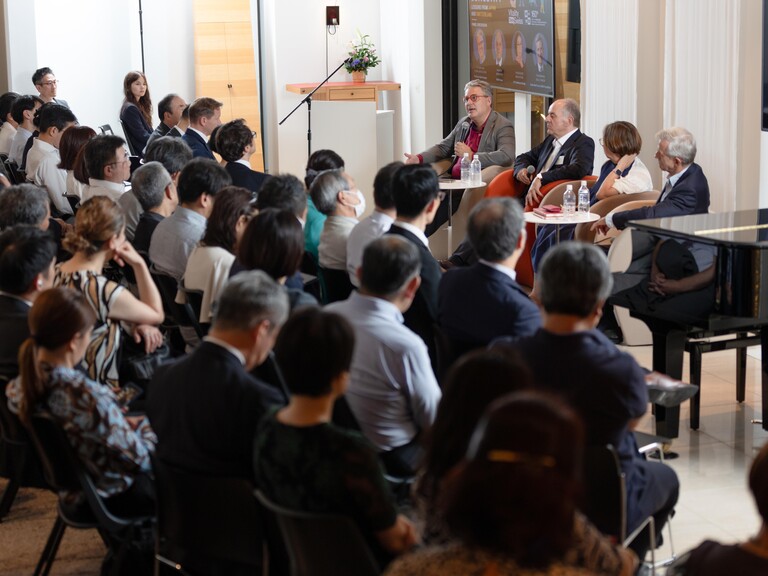
Key Learnings
The presentations and panel discussion outlined several takeaways. It is clear that the challenges and opportunities of ageing societies involve all generations and social classes, requiring to reimagine and reorganize social structures to foster intergenerational cooperation. Healthy longevity is about more than merely extending lifespan—it’s about creating purpose and encouraging older adults to stay active, connected, and engaged.
Discussions also touched on the need to rethink the definition of “elderly” and reconsider how society views ageing. Emerging technologies, such as AI, have the potential to revolutionize AgeTech in shaping new ways to care for the elderly, providing new means to support both older adults and their caregivers.
In conclusion, as Switzerland and Japan continue to lead in the field of healthy longevity, the event highlighted the need for societies to adapt and innovate. Only by doing so can we ensure that people of all ages can thrive, contribute, and live meaningful lives well into their later years.
Sponsors

